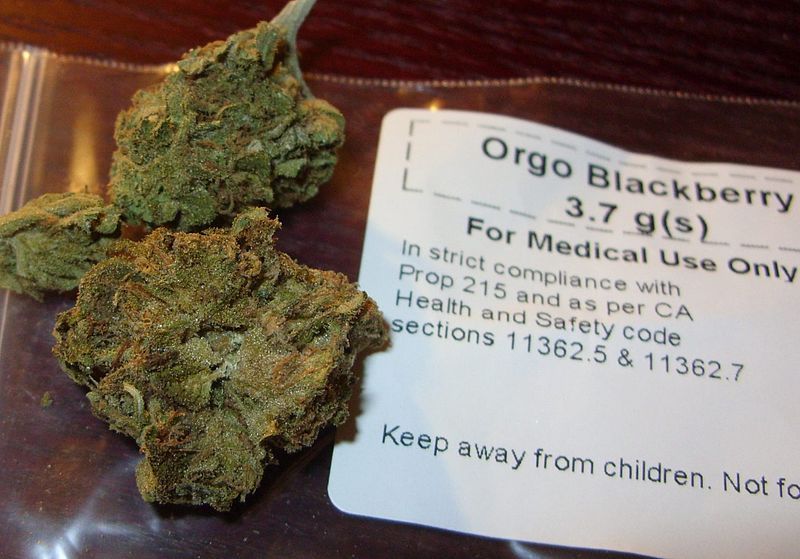Harnessing the Possible of Medical Marijuana: Recognizing Its Role in Promoting Health and Alleviating Health And Wellness Issues

The Scientific Research Behind Medical Cannabis
The efficiency of clinical marijuana in treating numerous wellness conditions is rooted in its interaction with the endocannabinoid system within the body. This complex biological system plays a vital function in managing different physical processes such as cravings, pain feeling, state of mind, and memory. The energetic substances in clinical cannabis, understood as cannabinoids, mimic the endocannabinoids created normally by the body, binding to cannabinoid receptors to regulate these physical features.
One of the primary cannabinoids found in clinical marijuana is cannabidiol (CBD), which is non-psychoactive and has been studied for its potential therapeutic impacts. By understanding the scientific research behind exactly how clinical marijuana engages with the endocannabinoid system, scientists can proceed to explore its capacity in advertising wellness and reducing different health and wellness problems.
Restorative Qualities of Cannabis
Comprehending the complex interactions between cannabinoids and the endocannabinoid system loses light on the therapeutic residential or commercial properties of cannabis for different health problems. Cannabinoids, such as tetrahydrocannabinol (THC) and cannabidiol (CBD), are the main compounds in charge of the medicinal benefits of marijuana. THC is recognized for its psychedelic impacts, however it additionally exhibits analgesic, anti-inflammatory, and anti-nausea homes. On the various other hand, CBD is non-psychoactive and has actually revealed great prospective in taking care of discomfort, anxiousness, epilepsy, and other neurological disorders.
Research studies have actually demonstrated the performance of medical cannabis in relieving signs related to persistent discomfort, multiple sclerosis, and chemotherapy-induced nausea and throwing up - Medical Marijuana Dispensary near me. Additionally, marijuana has revealed pledge in treating mental health and wellness conditions like anxiousness, depression, and trauma (PTSD)
Moreover, the anti-inflammatory residential or commercial properties of cannabinoids make cannabis a prospective therapy option for inflammatory problems such as joint inflammation and inflammatory digestive tract illness. The healing possibility of marijuana proceeds to be discovered via research study, providing brand-new insights right into its role in advertising health and dealing with a large range of health problems.
Medical Marijuana for Chronic Pain
Discovering the efficacy of clinical cannabis in taking care of persistent discomfort exposes its prospective as a feasible therapy alternative for individuals looking for alternative discomfort alleviation approaches. Chronic pain influences millions worldwide, usually bring about a diminished lifestyle and reliance on typical pain medicines that might come with undesirable side impacts or threats of addiction. Clinical marijuana, with its active substances like THC and CBD, has actually shown pledge in easing persistent pain by communicating with the body's endocannabinoid system to regulate pain perception.
Research studies have shown that clinical marijuana can properly lower neuropathic discomfort, arthritis-related pain, and pain connected with problems like multiple sclerosis. Its anti-inflammatory residential or commercial properties can also add to discomfort alleviation in problems such as fibromyalgia. Medical cannabis offers a more natural strategy to pain management, nextcare urgent care near me possibly minimizing the requirement for opioids and various other pharmaceuticals with harsher side effects.
As study into the benefits of medical cannabis for persistent discomfort proceeds to broaden, its duty in providing all natural discomfort alleviation remedies comes to be increasingly considerable for patients and medical care carriers alike.

Cannabis for Anxiousness and Tension
Research shows the possibility of marijuana in mitigating symptoms of stress and anxiety and tension, providing an encouraging method for those looking for alternative healing options. Stress and anxiety and anxiety are prevalent psychological wellness issues that can substantially influence an individual's wellness and everyday functioning. Standard treatments such as therapy and medication may not always work for every person, leading to an expanding rate of interest in alternate remedies like medical marijuana.
Cannabis includes substances called cannabinoids, such as cannabidiol (CBD) and tetrahydrocannabinol (THC), which communicate with the body's endocannabinoid system to control numerous features, consisting of state of mind home and stress and anxiety feedbacks. Researches have actually revealed that CBD, specifically, has anxiolytic buildings, meaning it can help minimize anxiousness levels. THC, on the various other hand, may provide relaxation and mood-lifting results that can be valuable for managing stress and anxiety.
Individual feedbacks to marijuana can differ, so it is vital for individuals considering cannabis as a therapy option for anxiety and tension to talk to health care specialists knowledgeable about medical marijuana to establish the most ideal items and does for their needs.
Marijuana in Epilepsy Treatment
With the tried and tested effectiveness of marijuana in resolving anxiety and anxiety, interest has turned towards its prospective function in the therapy of epilepsy. Epilepsy is a neurological disorder defined by reoccurring seizures, which can dramatically affect an individual's high quality of life. For people whose seizures are not effectively managed with standard therapies, exploring alternative healing options such as medical cannabis has come to be progressively appropriate.
Study on using marijuana for epilepsy is still progressing, however there is growing proof to suggest that certain substances in cannabis, such as cannabidiol (CBD), might provide anticonvulsant impacts. CBD, particularly, has actually shown assurance in decreasing the regularity and severity of seizures in some people site with epilepsy, leading to the approval of Epidiolex, a CBD-based medicine, for the treatment of certain kinds of seizures.
While more studies are required to fully understand the mechanisms behind cannabis' prospective advantages for epilepsy and to figure out the most effective solutions and does, the present findings indicate an appealing future for incorporating medical cannabis into epilepsy treatment strategies.
Conclusion
In conclusion, medical cannabis has actually revealed promising therapeutic residential properties in dealing with different health issues such as chronic discomfort, anxiety, anxiety, and epilepsy. Understanding the function of clinical marijuana in health care can lead to improved therapy options for patients seeking option remedies.
From chronic pain administration to anxiety alleviation and even in the therapy of epilepsy, the duty of medical marijuana is diverse and interesting. Medical Cannabis Clinic.Discovering the efficacy of medical cannabis in managing persistent pain discloses its potential as a sensible treatment option for individuals seeking choice pain relief techniques. Clinical cannabis, with its energetic compounds like THC and CBD, has shown pledge in relieving chronic discomfort by connecting with the body's endocannabinoid system to control pain understanding
Researches have shown that clinical cannabis can efficiently decrease neuropathic discomfort, arthritis-related discomfort, and discomfort linked with conditions like several sclerosis.In final thought, clinical marijuana has actually revealed promising restorative residential properties in dealing with various health and wellness concerns such as chronic discomfort, stress, anxiousness, and epilepsy.